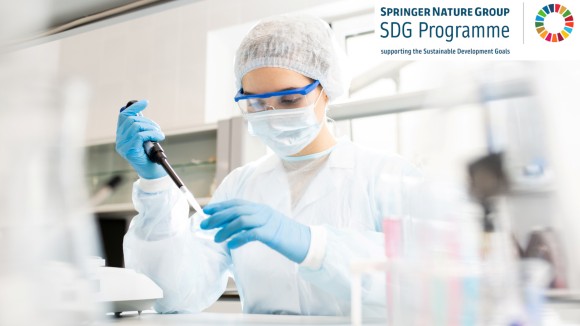 Sarah Lebeer, PhD, University of Antwerp, Department of Bioscience Engineering, Antwerp, Belgium.
Sarah Lebeer, PhD, University of Antwerp, Department of Bioscience Engineering, Antwerp, Belgium.
Sarah Lebeer is a full professor in applied microbiology and biotechnology at the Department of Bioscience Engineering, University of Antwerp, Belgium. Trained as a Bioscience Engineer in Cell and Gene Biotechnology, she earned her PhD in bacterial genetics and probiotics at the University of Leuven, Belgium, followed by a postdoc on mucosal immunology and vaginal lactobacilli at the same institution.
Joining the University of Antwerp in November 2011, Sarah established a pioneering research line on beneficial microbiology for humans, plants, and the planet. As an academic board member of the International Scientific Association on Probiotics and Prebiotics (https://www.isappscience.org) since 2016, she contributes to advancing knowledge in this field. In 2019, Sarah secured an ERC research grant (Lacto-Be, grant agreement ID: 852600) focusing on the ecology, evolution, and beneficial potential of lactobacilli.
Sarah's research, conducted with her dedicated team, centers on the microbiome of various mucosal surfaces in humans (particularly the vagina, skin, and respiratory tract), animals and plants, including fermented plants and vegetables. Their objective is to identify commensals with potential applications as probiotics, life biotherapeutic products, and sustainable bio-based solutions for humans, plants, animals, and the environment.
Leading the Isala citizen-science project on the vaginal microbiome and women's health (https://isala.be/en), Sarah actively promotes diversity and awareness in microbiome research. The project, currently expanding globally with numerous sisterhood initiatives, aims to make impactful contributions to understanding and improving women's health.
Motivated not only by the intricacies of the microbiome but also by a broader commitment to fostering diversity, Sarah has guided over 100 students, from bachelor to PhD level, from around the world. Her dedication extends not only to understanding and enhancing the diversity of the microbiome at the micro-level but also to actively promoting inclusivity among researchers and citizens contributing to her projects.
 Bruno Pot, PhD, Science Director Europe at Yakult Europe BV, The Netherlands, Food Microbiology Professor at the Vrije Universiteit Brussel, Belgium.
Bruno Pot, PhD, Science Director Europe at Yakult Europe BV, The Netherlands, Food Microbiology Professor at the Vrije Universiteit Brussel, Belgium.
Bruno Pot made a PhD in microbial taxonomy at the University of Gent, Belgium. In subsequent postdocs he performed research on lactic acid bacteria. In 1997 he joined the science department of the company Yakult as science manager for the Benelux. He worked as Research Director at the Institut Pasteur in Lille, France, from 2001 till 2016. During that time he was also Director of Business Development at the bioinformatics company Applied Maths NV in Belgium and Professor at the Vrije Universiteit Brussel for courses in food microbiology – ecology and - hygiene. His major research topics have been lactic acid bacteria, probiotics, bacteria-host interaction, bioinformatics of microbiological data and health claim substantiation. Since November 2016 Bruno is back with Yakult as Science Director for Europe. He is a member of the Taxonomic Subcommittee for Lactobacillus, Bifidobacterium and related taxa since 1987, former ISAPP Board member, former president of the Pharmabiotic Research Institute (currently VP) in France, Board member of the LABIP and ENLP, and Chair of the Board of ILSI-Europe. He authored or co-authored >250 scientific articles and >20 book chapters.

